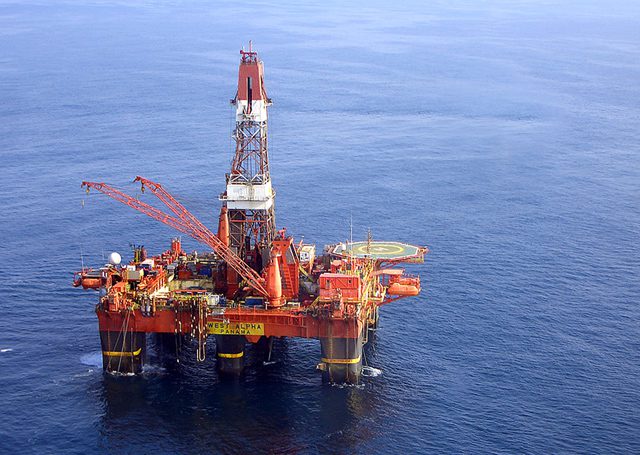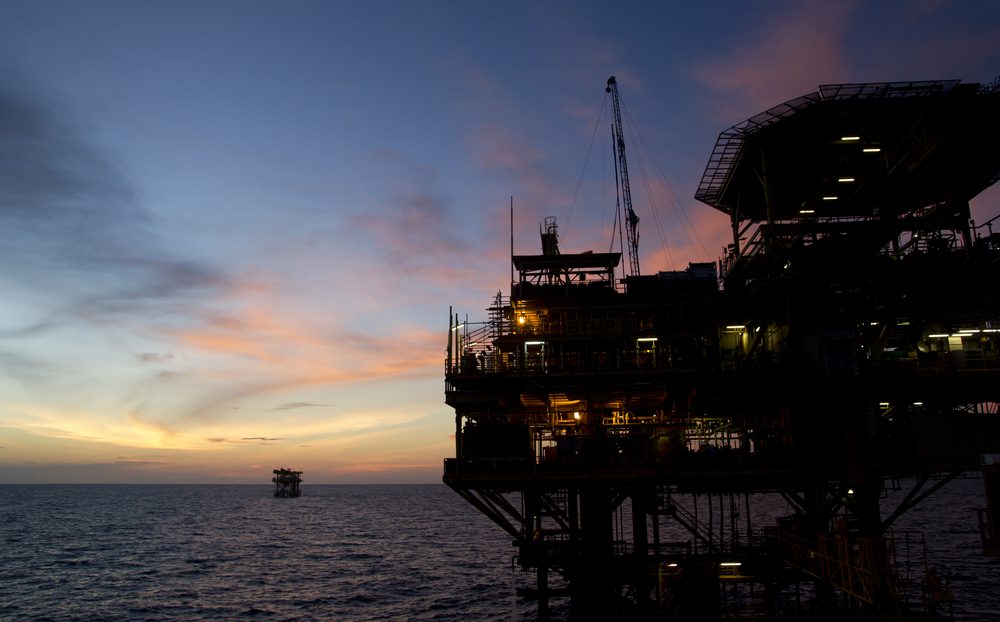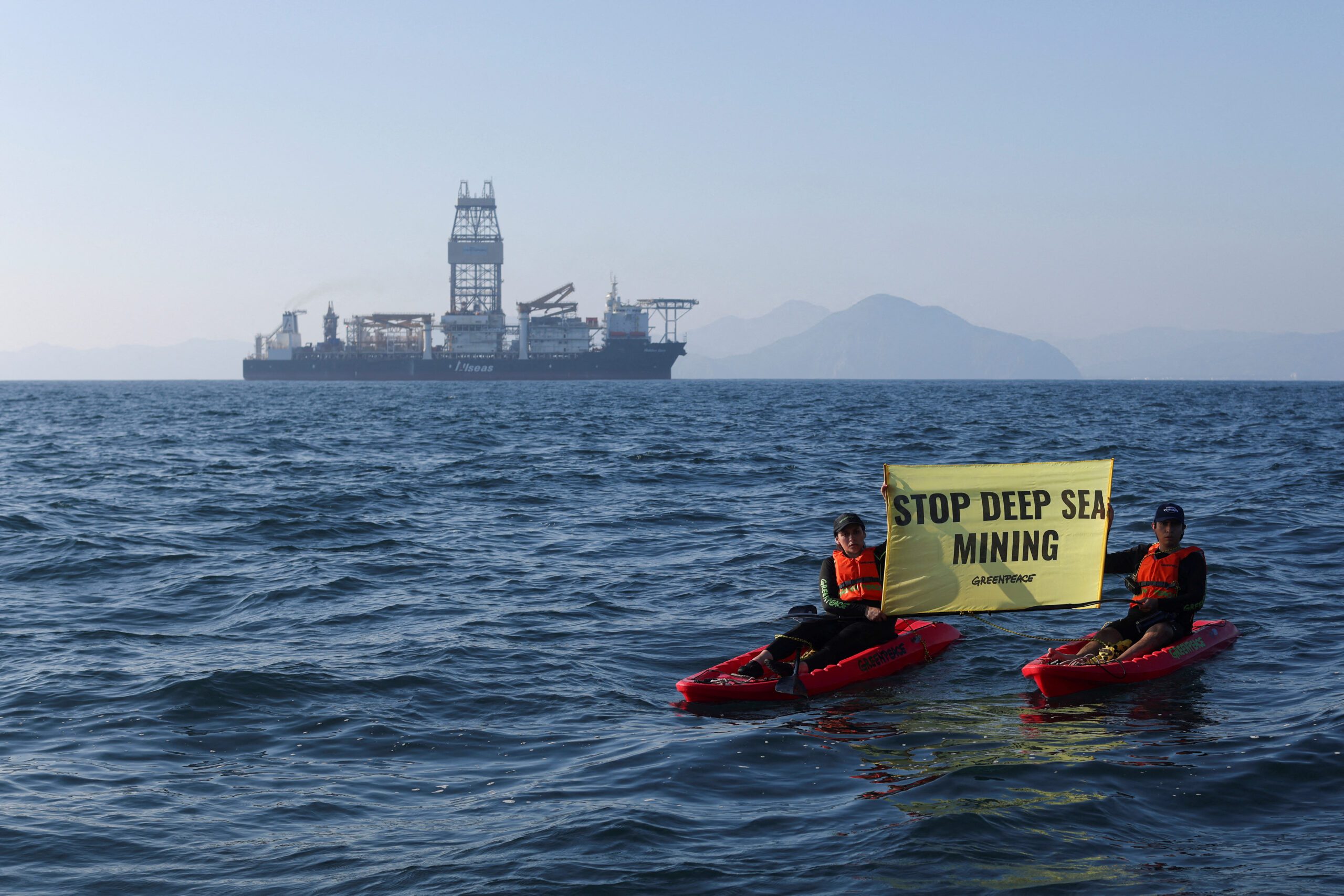North Atlantic Drilling’s semi-submersible rig, West Alpha, photo: Seadrill
 By Balazs Koranyi and Gwladys Fouche
By Balazs Koranyi and Gwladys Fouche
OSLO, July 21 (Reuters) – An ordinary, long-scheduled journey of an oil drilling rig into Arctic waters is turning into a major political exercise, attracting international scrutiny and creating a dilemma for ExxonMobil.
Exxon, the top U.S. oil major and the world’s most valued oil company, is bringing the rig, called West Alpha, from Norway to the Russian Arctic. It is hoping for a major discovery in the Kara Sea with Russian partner Rosneft.
The journey has begun just as the United States has slapped the toughest sanctions yet on Russia, including on Rosneft, over escalating violence in Ukraine. Further sanctions are likely after the downing of a Malaysia Airlines’ plane in eastern Ukraine.
The joint activity does not necessarily break the latest sanctions, but the rig’s mission will be seen a sign that a top U.S. company is backing Moscow.
Arctic exploration costs can exceed hundreds of millions of dollars. The Exxon-Rosneft drilling campaign, therefore, will also show how effective the latest sanctions prove to be in prohibiting U.S. firms from providing new long-term debt or equity to Rosneft.
“It’s a bit discordant with the message that the United States government is trying to send, having this long-planned summer drilling season go ahead right now,” said Elizabeth Rosenberg, energy program director at the Center for a New American Security think-tank and a former sanctions adviser at the Treasury Department.
From a broader prospective, the project will indicate the resolve of major oil companies to continue dealing with Russia even as conflict escalates with the West.
“We are evaluating the impact of the sanctions and don’t have anything further at this time,” Exxon said in emailed comments.
For the Kremlin, the project will become a balancing act between achieving its goals of raising oil output and government revenue and the risk of pushing foreign partners so hard that they run up against the sanctions regime.
West Alpha belongs to Norway-listed Seadrill, the world’s biggest offshore rig firm, and Exxon has contracted the rig until the third quarter of 2016.
Seadrill Chief Financial Officer Rune Magnus Lundetrae told Reuters the rig had already sailed from the Norwegian yard and was on its way to the Kara Sea.
“She’s on her way up now from the yard where she’s been preparing for that activity … Drilling will start within the third quarter. We’re in early Q3 now, so we’re talking about this quarter,” he said.
Lundetrae declined to discuss the latest U.S. sanctions: “We are preparing to drill and will deal with situations as they occur.”
Satellite tracking showed the rig was heading towards Russia along the Norwegian coast.
SPILLOVER EFFECTS
The latest U.S. sanctions do not necessarily aim to hit projects between Rosneft and foreign partners.
President Barack Obama said the sanctions were “designed to have maximum impact on Russia while limiting any spillover effects on American companies or those who are allies”.
But Obama also warned that additional steps were on the table if Russia does not change course in eastern Ukraine – a signal that joint ventures with U.S. companies could face risks.
By going ahead with drilling, companies risk antagonising the U.S. administration, Rosenberg said.
“You’d be missing the point if you took one drilling season, what is ultimately at this point a pretty limited joint venture activity, and weighed it quite heavily against the president of the United States.”
Exxon has shown in the past it can take decisions that do not fully align with U.S. policies.
In one recent example, Exxon’s decided to invest in Iraq’s semi-autonomous Kurdistan region two years ago despite, anger from the central government in Baghdad and opposition from Washington.
The West Alpha journey also will be watched by the ecologists, who call for a ban on offshore drilling in the Arctic. Earlier this year, Greenpeace climbers scaled the West Alpha rig.
Truls Gulowsen, head of Greenpeace Norway, could not say whether Greenpeace was planning another protest. (Additional reporting by Timothy Gardner, Writing by Dmitry Zhdannikov; editing by Jane Baird)
(c) 2014 Thomson Reuters, All Rights Reserved

 Join The Club
Join The Club











